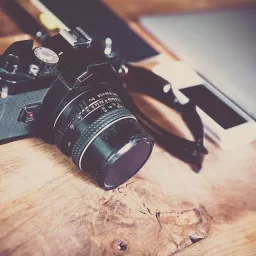When it comes to a DIY rear view camera installation, the easiest system to install is a wireless backup camera that makes use of the existing rear license plate mounting holes. It is much easier than a wired rear view camera installation because it is not necessary to run several feet of video cable from the rear of your car, through the cabin, and up to the dashboard. Other than that, any rear view camera installation is basically the same.
Rear view cameras have become a more and more popular safety feature that is a standard feature of many new cars. In only a couple of years, backup cameras will become mandatory on all new cars.
Tools
The tools you will need are simple:
- Either a blade or Philips screwdriver to remove the license plate, license plate light, and mount the camera
- Double-sided tape in lieu of screws to mount the transmitter or power supply in the rear of your vehicle
- You may want to use a drill driver to mount the wireless transmitter inside the rear of your vehicle
- If you are unable to take advantage of the license plate light to route wiring, you may need to use a drill to make a small hole to route the wires
- If you do have to drill a hole, make sure you use the rubber grommet that comes with the kit to protect the wires from the rough edges of the hole
- Wiring connections to splice the power cables into the backup light wiring
- Make sure you have an available 12V power port to plug-in the video display monitor or have a plan for how your will hardwire the video display into your existing under-dash wiring
Wireless Backup Camera System Installation Steps
Each wireless backup camera system comes with three main components; a camera, a transmitter, and a video display/receiver.
Mount the Camera
- Mount the reverse camera on the rear license plate by removing the license plate mounting screws and using them to mount the camera.
- Every vehicle requires a lighted rear license plate and that is done usually with two lights on either side of and above the plate. Remove the light closest to the camera mount’s wiring source and route the wires through the hole with the other light wires. Replace the license plate light.
- Route the wires inside the rear of your car or trunk to the closest rear taillight housing. You will need to identify the backup light wire and splice the appropriate camera power wire to that wire. This will insure that the camera system only operates when your vehicle is in reverse. This is for safety purposes.
- The wireless transmitter will also need to be mounted inside the trunk or rear of the car and connected to the appropriate wire from the camera. Once that is complete, you are done at the rear of the car.
Mount the Video Display
- The video display is easy to install, but may be difficult to give a finished look. Most units simply plug into a 12V power outlet (like a cigarette lighter) for power and may even have the receiver built-in.
- The video display can often be mounted on the dash or windshield with the included mount.
- Some video displays come in the form of a replacement rear view mirror. These are typically mounted over the existing mirror with built-in adjustable clamps. A rearview mirror camera that replaces the existing mirror is more difficult to install and those steps are not covered here.
- If you decide to hide the wiring, you can run the power cord into the headliner, down the A-pillar, under the dash, and either to the nearest 12V power plug or wired directly into the vehicles wiring.
Test the System
- Turn on the car and place the car in reverse. The video display should come on automatically with the rearview camera’s video displayed.
- When you put the car’s transmission in any other position, the video display should go blank.
With your new aftermarket rearview camera system installed, you will be able to backup and park safer than before. It’s easy to see why a wireless backup camera is such a popular safety device on vehicles.
BY by GAHZLY
#Wireless #Backup #Camera #Wireless #Rear #View #Camera #System #Installation #Guide




